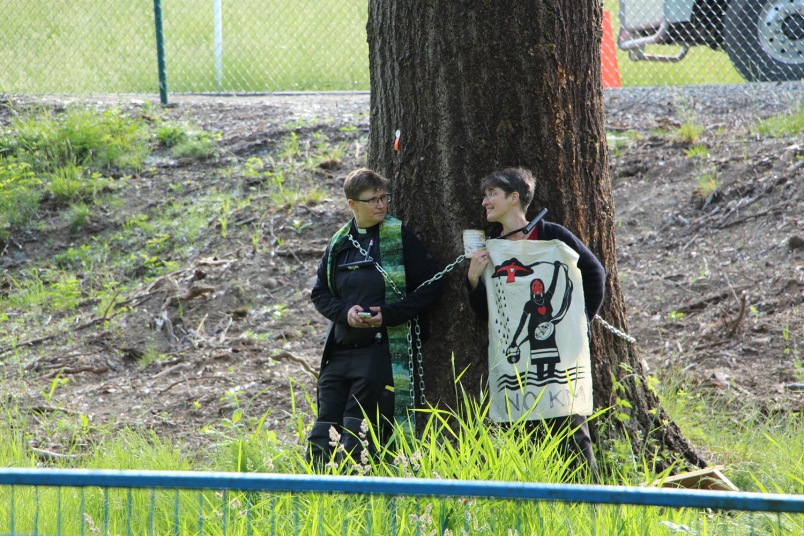
It’s all part of protecting the planet from the Kinder Morgan pipeline, which, for Anglicans these days, supposedly signifies a deep Christian faith.
If only Anglican clergy could bring themselves to expend as much energy protecting the future inhabitants of the planet they feel is in such dire peril: unborn babies, 100,000 of whom will be killed in 2018.
From here:
A priest and her parishioner were arrested on Burnaby mountain after they chained themselves to a tree outside the Trans Mountain terminal Friday morning, according to Burnaby RCMP.
The two women began their protest around 7:30 a.m. They were identified by a friend as Rev. Laurel Dykstra and Lini Hutchings, both members of Salal and Cedar, an Anglican church part of the Diocese of New Westminster. Around the same time, a group of protesters from Protect the Inlet began blocking trucks from leaving Kinder Morgan’s Westridge marine terminal in North Burnaby. Some thirty people had gathered on site that morning. Burnaby RCMP arrived at both locations around 8:30 a.m.
[….]
Rev. Emelie Smith, the parish priest at St. Barnabas Anglican Church in New Westminster, said the two women were protesting because of their religious beliefs.
“I think it’s an act of faith. I think people should know they are doing this out of their deep Christian faith and need to protect the planet,” she said.
Rev Dykstra is bisexual, participates in the Vancouver Pride parade, thinks drag queens should be invited to speak to school children, and enjoys chaining herself to trees in her spare time.

